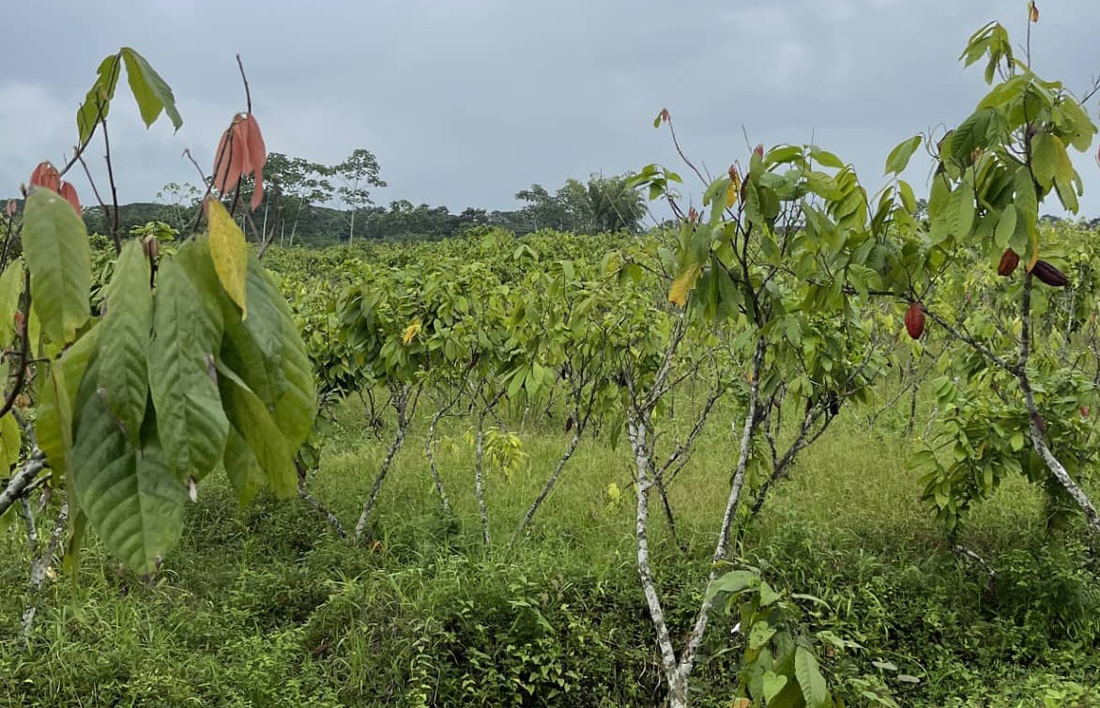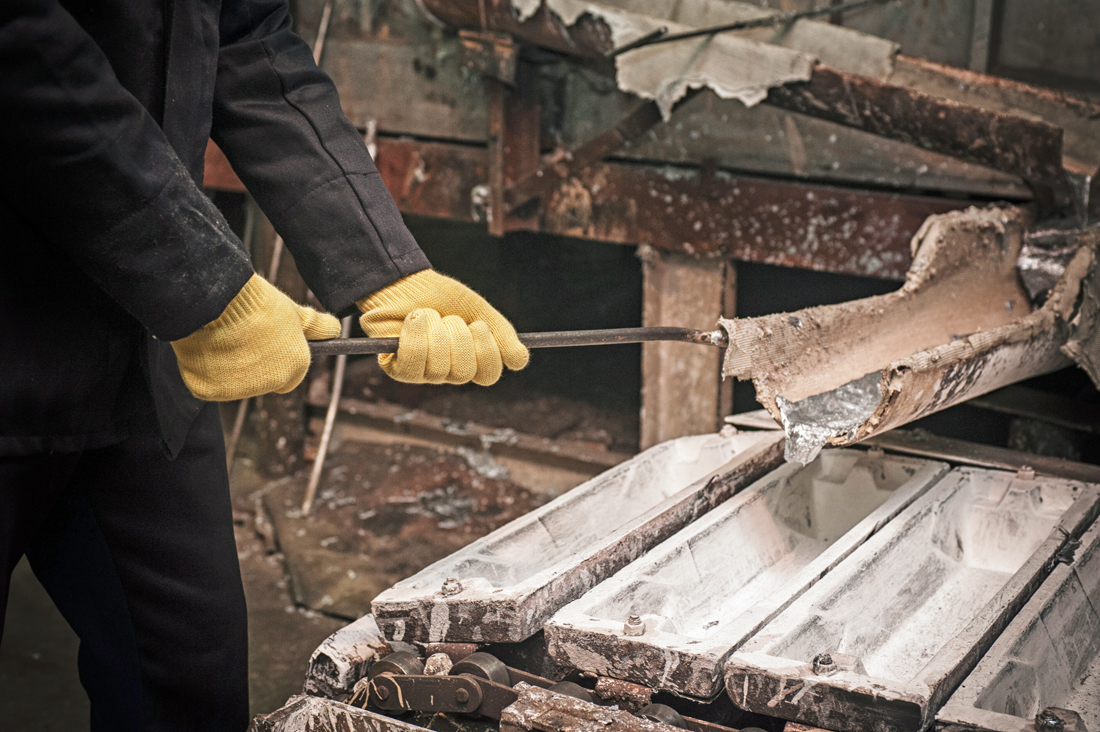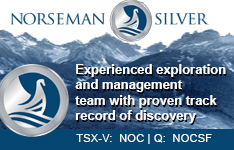We recently sat down with Rick Mills of Ahead of the Herd to discuss how he believed a perfect storm was forming for commodities. While his stock picks and thoughts on the market's future movements were compelling, a private company made its way into our conversation: Evanesce.
Evanesce is a technology company currently in the weeds, creating an environmentally friendly alternative to single-use plastic. This technology is 100% compostable and plan-based, and it has a competitive cost compared to other ecological options.
According to this overview from Mills, "The company has taken a unique approach of positioning itself as a leading solution provider to the alternative packaging industry, targeting the single-use plastics (SUP) market that is worth some US$980 billion per year."
Mills noted that he has previously participated in private placements with Evanesce because not only does he believe in the company, but he has his heart in its mission as well.
Production of Plastics Is Doubling
In our conversation, Mills spoke about the inundating production of plastics. He shared a study by the World Economic Forum that stated by 2050, there would be "more plastic than fish" in our oceans.
And plastic production isn't slowing down. In fact, "plastic production has sharply increased over the last 70 years. In 1950, the world produced just two million tonnes. It now produces over 450 million tonnes," wrote Hannah Ritchie, Veronika Samborska and Max Roser in an article in Our World Data.
"Production is expected to double again over the next two decades and quadruple by 2050," Rick Mills said. Even though we have a more aware public and we are ramping up recycling programs, very little plastic actually ends up being recycled, according to Mills.
The Problem With Micro-Plastics
"99% of plastic is made from fossil fuels," Mills stated. "A significant portion of emissions comes from the extraction of transportation fuels that create plastic, including methane from natural gas." He noted that this is why plastic-making plants are extremely harmful to the environment. However, plastic isn't just harmful to the environment; it also has a negative impact on our health as well.
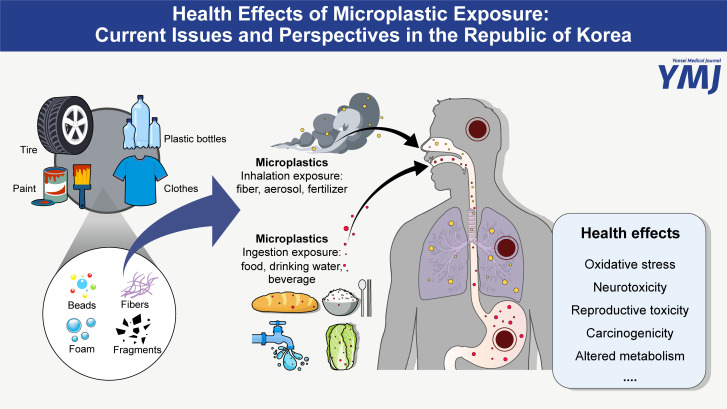
Recently, the public is becoming more and more aware of microplastics. "Microplastics are tiny plastic particles less than five millimeters in size," noted Dr. Leigh Shemitz for Yale Sustainability. "These pieces range anywhere from about the diameter of a grain of rice to where they need to be seen under a microscope."
These plastics are not only small but are now being found in almost everything, from our oceans to our drinking water. Canadian researcher Janice Brahney even noted that plastic particles can be found in the air and can "stay in the atmosphere anywhere from a few hours to more than six days."
Mills even shared that these microplastics can be found in our babies.
According to the University of Hawaii News, researchers collected ten placentas and found microplastics in six of them. In 2013 nine out of ten contained microplastics, and in 2021, all ten were found to have microplastics in them.
"There is no part of the globe that does not have microplastics," wrote Shemitz, and these microplastics may be detrimental to our overall health.
A July study published in PNS found that "a host of potentially infectious disease agents can live on microplastics, including parasites, bacteria, fungi, and viruses."
"Various examples of damage caused by microplastics have been reported, such as microplastic accumulation in the bodies of marine and aquatic organisms (leading to malnutrition), inflammation, reduced fertility, and mortality," according to a study by Yonsei Medical Journal. While effects on the human population have not been thoroughly studied, the research noted that "previous reports have shown that ultrafine microplastic absorption resulted in complex toxicity in zebrafish and that microplastics under 100 nm in size can reach almost all organs after entering the human body. Therefore, concerns exist regarding the negative effects of continuous microplastic accumulation in the human body."
With this in mind, many countries have taken steps to counteract the amount of microplastics humans are exposed to. For example, in 2015, four states banned the use of microscopic beads in makeup, and in 2016, Canada banned exfoliating beads in skincare and cleansing products. While limiting plastic is a step in the right direction, Evanesce wants to find an alternative to plastic altogether.
100% Compostable and Plant-Based Solution
Evanesce is a sustainable technology company, with an aim to revolutionize service ware and single-use plastic. Its solution? A 100% compostable and plant-based alternative. This alternative would also decompose quickly, within 90 days, compared to regular plastic, which could take anywhere from 50 to 200 years.
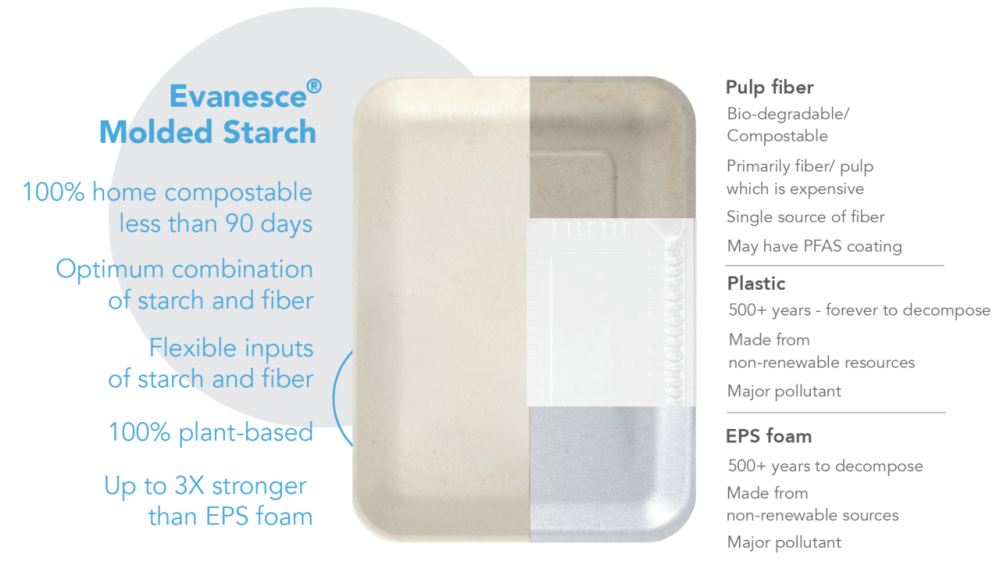
This new plastic is created using plant resin and is currently being used in a myriad of food packaging, from cups and plates to straws and cutlery.
According to Evanesce, this alternative plastic has the look and feel of traditional plastic without the negative impacts. The company's technology is also covered by six issued patents and 14 patents pending.
The goal of the company is to disrupt the single-use plastic industry, a market valued at US$26 billion in 2023.
Moving Along With Joint Ventures
Evanesce isn't trying to tackle this problem on its own. Mills pointed out that the company already has a joint venture with Minima Technologies, Asia's premier brand for compostable products and resins.
"Minima is based in Taiwan. And they've got some of the largest chemical and distribution company players, including China base, Formosa Plastic, and Japan's Mitsui company, one of the largest logistics and trading companies in the world. So through their joint venture, Evanesce is providing a PLA technology that is partly owned, mostly owned by them, and partly owned by Minimax," Mills told Streetwise.
Mills also pointed out that this technology is half the cost of other sustainable plastic alternatives, but Evanesce isn't stopping there. Its next venture will be replacing styrofoam in meat packaging with eco-friendly alternatives.
Plans to Go Public
Currently, Evanesce is a private company. However, it does have plans to go public. There has been no definitive date, but Mills predicted the company could be public sometime in 2024, though he makes no promises.
If you liked this, you can find more content by subscribing to his free newsletter here.
| Want to be the first to know about interesting Special Situations investment ideas? Sign up to receive the FREE Streetwise Reports' newsletter. | Subscribe |



